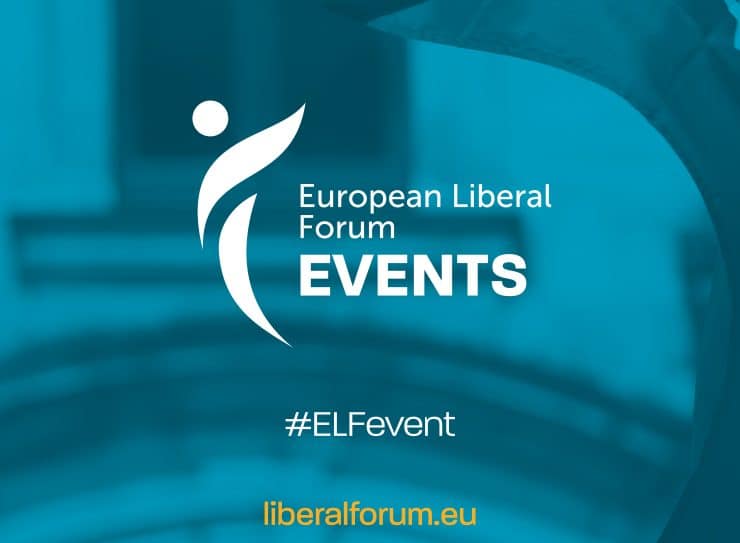01 Nov 2022 | 10:00 am - 3:00 pm (CEST)
Hybrid event
What is the meaning of the word liberalism today? What are the values that liberals possess or adhere to?

What is the meaning of the word liberalism today? What are the values that liberals possess or adhere to? It seems that there was time when the meaning of the word liberalism was conceptually simpler than today. There were classical liberals, who emphasized a smaller state, clear rules, limited regulation, as well as individual freedom and responsibility. Classical liberals would oppose the prohibitions and restrictions that are constantly increasing in today´s world. One of the main attributes of classical liberals is that they welcome positive attitudes towards dialogue, diversity of opinion, and free discussion.
There have always been libertarians and anarcho-liberals who have similar attitudes as liberals, but according to some, they are more radical and perhaps even fundamentalist. Their vision is also more utopian and less prone to compromise. Similar to liberals, there have been many types of libertarians, but in general they believe in private currency, private courts, and are against modern central banks. However, there is the word liberalism and a liberal, as it is understood in the United States. According to the American point of view, a liberal is someone who is more of a socialist, a progressive, and is most likely intolerant of different views, beliefs, and or ideologies, more specifically if they are opposed to their own views. Nowadays, many Europeans have begun to adopt this American terminology.
Today, infringements on human freedoms have increasingly occurred. These are infringements which liberalism is antithetical to and therefore liberals should oppose. Some of these infringements include increased travel-related controls and restrictions due to the potential threat of terrorist attacks, increased restrictions/limitations of freedoms within a pandemic situation, and, of course, increased restrictions/limitations on the Internet. We are currently witnessing an entirely new level of censorship and restrictions on freedom of expression on the Internet. One of the final infringements, that also directly ties into Internet censorship, is the demand to not resist approved scientific opinions, with which modern governments desire to manage modern societies. These scientific opinions are related to climate change, the pandemic, etc.
With this pretext in mind, the pivotal questions in this scenario are: Why are there so few liberals in Europe? Why are they always weaker against conservatives, socialists, and greens? Can we consider a conservative a natural ally of a liberal? Viktor Orbán, for example, recently proclaimed that the liberals are the conservatives arch-foes. Did he mean progressives as opposed to liberals? Did he say it purposely? How does the concept of liberal democracy relate to liberalism? How can we describe the relationship between liberalism and constitutionalism, or between liberalism and federalism?
10:00 – 10:15 Introduction
Šárka Shoup, Executive Director, Institute for Politics and Society and Member of Board, European Liberal Forum
Jan Macháček, Chairman of Board, Institute for Politics and Society
10:15 – 11:15 Classical liberalism and Libertarianism
Speakers:
Detmar Doering, Project Director Central Europe and the Baltic States, Friedrich Naumann Foundation
Jiří Schwarz, President, Anglo-American University
Edvard Outrata, Former Senator, Member of the Board, Institute for Politics and Society
Štěpán Hobza, Journalist, Lidové Noviny
Moderator: Jan Macháček, Chairman of the Board, Institute for Politics and Society
11:15 – 12:15 American vs. European liberalism – Confusion of Concepts?
Speakers:
Roman Joch, Director, Civic Institute
Jan Macháček, Chairman of the Board, Institute for Politics and Society
Gian Marco Bovenzi, Project Manager, Fondazione Luigi Einaudi
Moderator: Roman Máca, Analyst, Institute for Politics and Society
12:15 – 13:00 Lunch break
13:00 – 14:00 Liberalism and the Contemporary Challenges I. – Liberalism and fight against climate change, How liberal bias in media can undermine liberalism. Liberalism and fight against climate change, liberalism and fight against a pandemic
Speakers:
Veselin Vačkov, Managing Editor, Lidové noviny
Lukáš Kovanda, Chief Economist, Trinity Bank
Zina Zlatanova, Member, Liberal Institute for Political Analyses
Alexander Tomský, Political scientist and publicist
Filip Blaha, Chairman, Czech Students For Liberty
Moderator: Jan Macháček, Chairman of the Board, Institute for Politics and Society
14:00 – 15:00 Liberalism and Contemporary Challenges II. – Social networks and new censorship, Liberalism and the fight against terrorism. Liberalism and European integration, Liberalism and the four freedoms of the EU single market
Speakers:
Jacques Rupnik, Professor, Sciences Po
Stefano Adamo, Associate Professor of Italian Culture, University of Banja Luka in Bosnia and Herzegovina
Christopher Gleadle, Director, The Paddy Ashdown Forum
Miroslav Crha, Lawyer, Reconstruction of the State
Moderator: Roman Máca, Analyst, Institute for Politics and Society
The online event is organised by the European Liberal Forum asbl (ELF). Co-funded by the European Parliament. Neither the European Parliament nor the European Liberal Forum are responsible for the content of the programme, or for any use that may be made of it. The views expressed herein are those of the speaker(s) alone. These views do not necessarily reflect those of the European Parliament and/or the European Liberal Forum asbl.